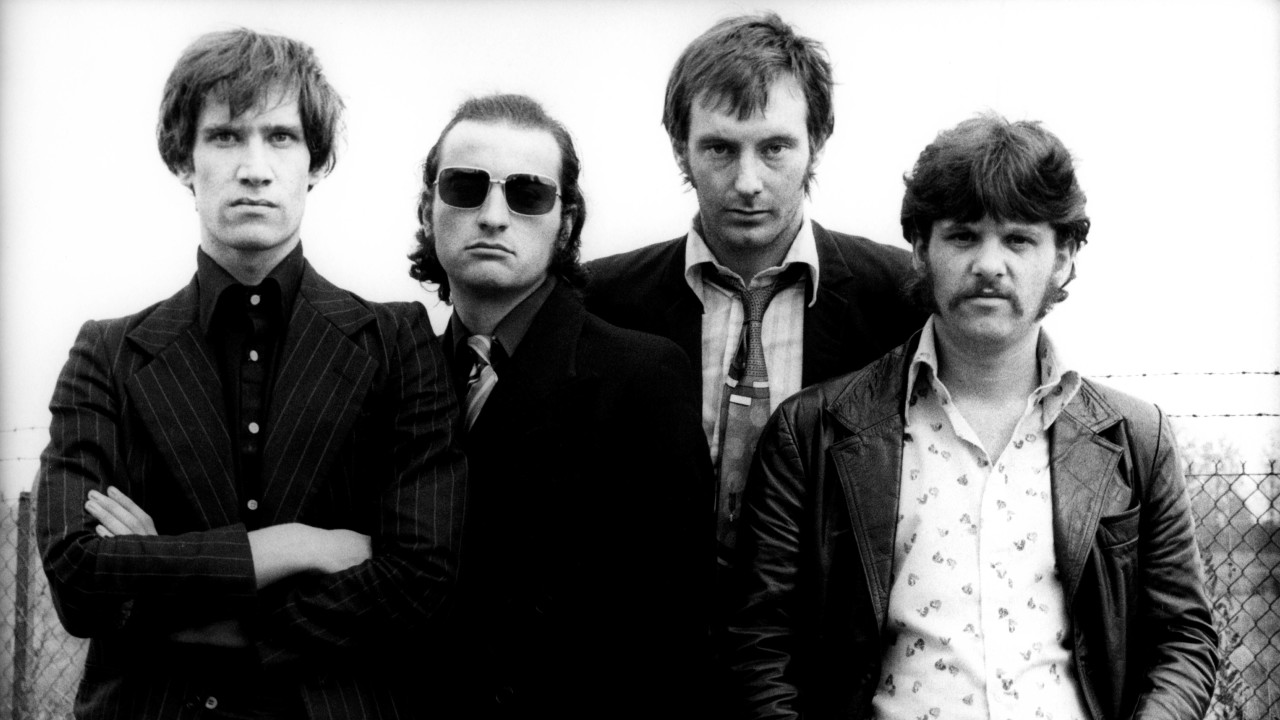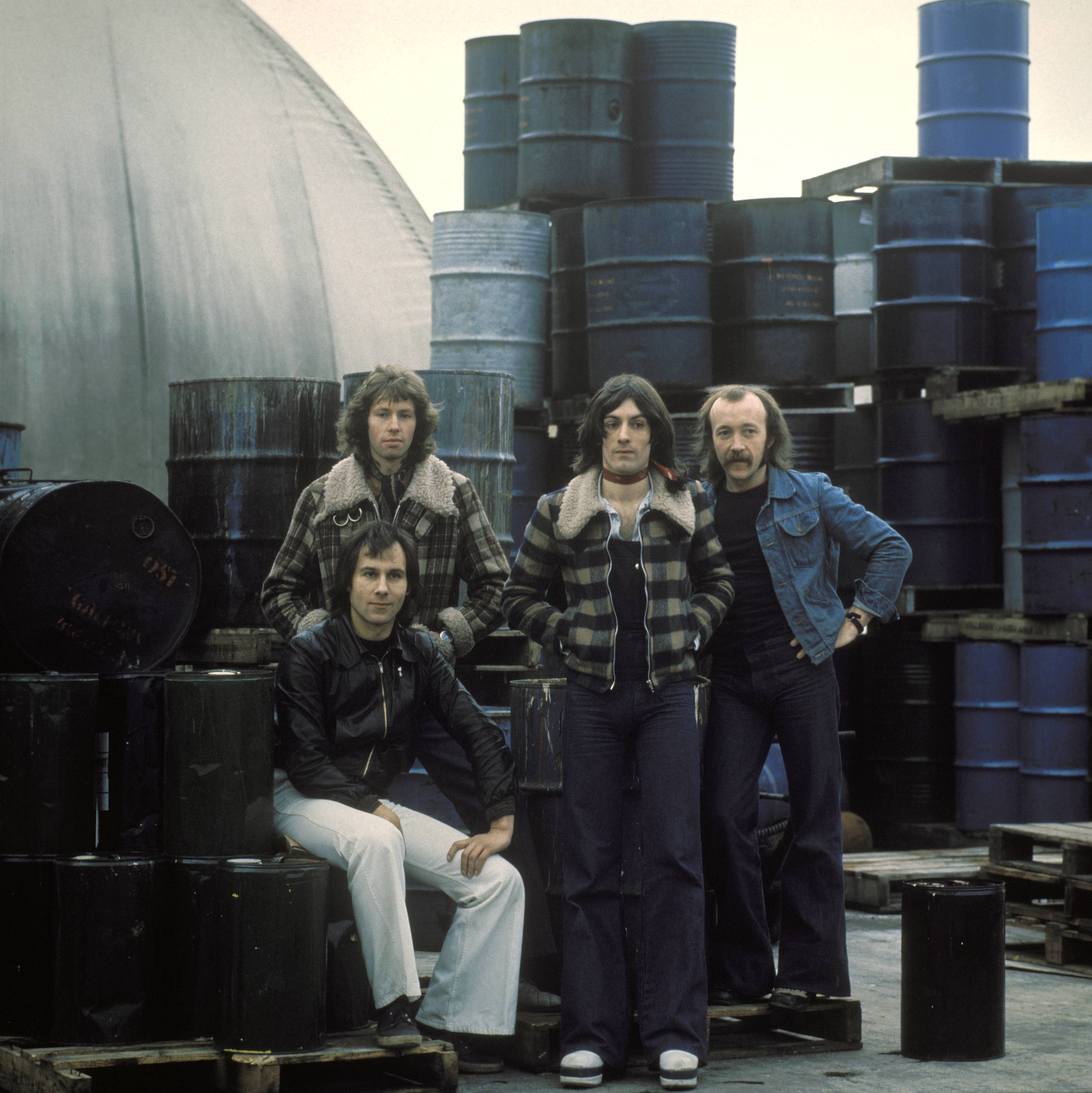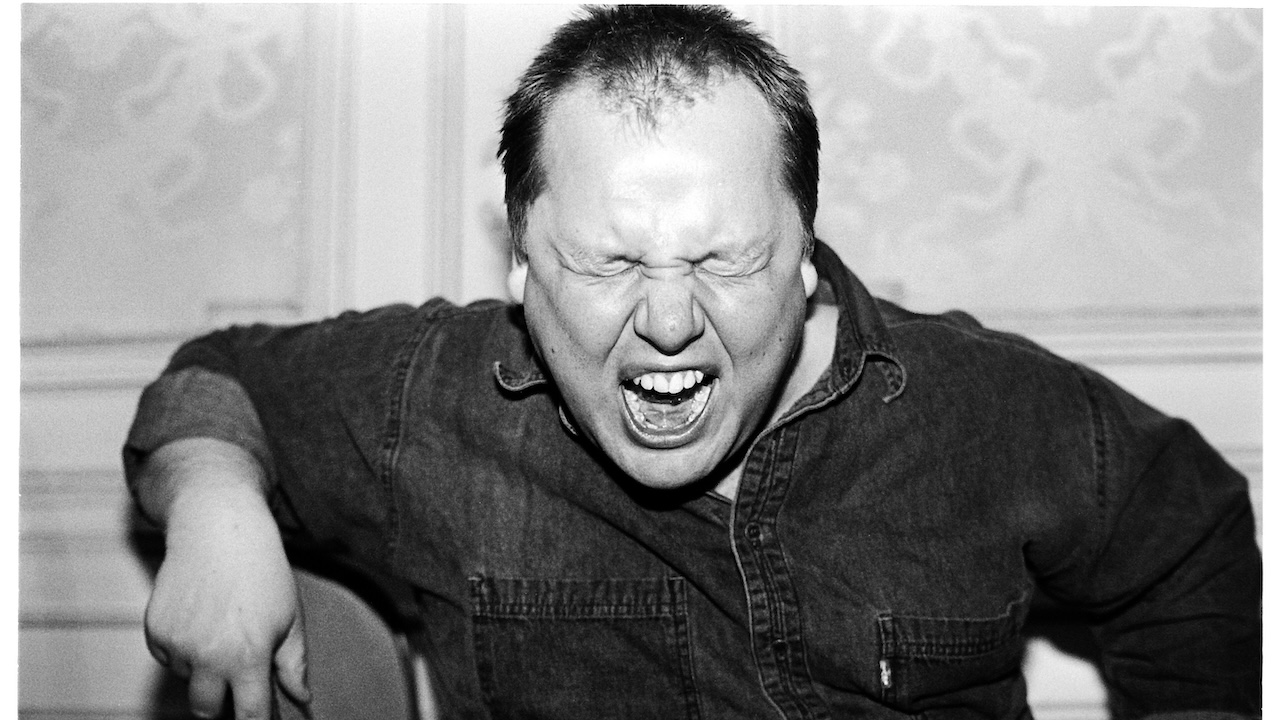The Blues has survived punk and influenced grunge. Why? Honesty.
It may have been the music of choice for true hipster cats in the 60s, but how did blues retain its ice-cool cred? To find out, we talked to members of The Groundhogs and Dr Feelgood

Select the newsletters you’d like to receive. Then, add your email to sign up.
You are now subscribed
Your newsletter sign-up was successful
Want to add more newsletters?

Every Friday
Louder
Louder’s weekly newsletter is jam-packed with the team’s personal highlights from the last seven days, including features, breaking news, reviews and tons of juicy exclusives from the world of alternative music.

Every Friday
Classic Rock
The Classic Rock newsletter is an essential read for the discerning rock fan. Every week we bring you the news, reviews and the very best features and interviews from our extensive archive. Written by rock fans for rock fans.

Every Friday
Metal Hammer
For the last four decades Metal Hammer has been the world’s greatest metal magazine. Created by metalheads for metalheads, ‘Hammer takes you behind the scenes, closer to the action, and nearer to the bands that you love the most.

Every Friday
Prog
The Prog newsletter brings you the very best of Prog Magazine and our website, every Friday. We'll deliver you the very latest news from the Prog universe, informative features and archive material from Prog’s impressive vault.
Distilled to its very essence, blues rock is simply too rough, ready and elemental to sit comfortably in the rarefied and polite confines of the mainstream.
Raw and uncultured, sometimes even brutal in its sheer unapologetic honesty, blues rock naturally thrives in dark, subterranean clubs. With its apparent inability to compromise, it’s remained underground, retained radical chic and ultimately endured as the musical lingua franca of the street-wise outsider and the final refuge of the terminally hip.
Blues rock hasn’t really been reduced to cult status: it’s been bopping up and down just beneath the radar of the mainstream ever since its UK genesis. In fact, its beginnings couldn’t have been more humble. When Alexis Korner and Cyril Davies first got the ball rolling by inveigling a short r‘n’b segment into trombonist Chris Barber’s live shows, the blues arrived as an almost throwaway by-product of the mid 50s trad jazz fad, and as word-of-mouth momentum gradually picked up, the nascent scene took years to establish even a cult following.
The birth of the initial blues rock boom mirrored the beginnings of the subsequent punk movement in many ways: a young, art school audience warmed to the simplistic honesty of a primitive alternative to the long-winded excesses of jazz, while the dormant creativity in an entire generation of aspiring musicians was unleashed by the sheer excitement and shock of a new, accessible strand of rock’n’roll music that was incredibly easy to play.
One early convert was teenager Tony McPhee: “My brother started bringing home imported blues albums: it was then that I first heard this raw stuff and my ears pricked up. There was some good pop music at the time but nothing that really stirred you. Then I went to see Cyril Davies at the Marquee in 1963, heard proper R&B and thought: ‘this’ll do’.”
A suitably inspired McPhee immediately formed The Groundhogs. While a host of contemporaries from The Rolling Stones to the Pretty Things purposefully edged away from the R&B scene in order to seduce more mainstream pop audiences, McPhee’s Groundhogs stuck to their blues roots, even backing John Lee Hooker on an album and two UK tours, but the cool, proto-mod kids that formed the blues’ cult following proved surprisingly fickle: “The first blues boom ended when soul came in, that killed it stone dead,” McPhee remembers.

The Groundhogs were put on ice as Motown temporarily swallowed their audience. But certain members of the mod fraternity never lost their affection for the blues, not least The Small Faces ace face Steve Marriott. The writing was on the wall when the cheeky, cockney chappie briefly dropped his crowd-pleasing, psychedelic music hall turn to record You Need Love in ’66 (a prototype for Led Zeppelin if ever there was one), but he truly nailed his colours to the mast when he split from The Faces to form blues-based cult favourites, Humble Pie.
The latest news, features and interviews direct to your inbox, from the global home of alternative music.
As Fleetwood Mac brought the blues back into vogue, The Groundhogs returned to find their audience a little hairier and a trifle more medicated, but with as much of an appetite for gutsy blues primitivism as ever. So as not to be caught napping a second time, McPhee eased The Groundhogs’ second album in a decidedly prog-ward direction: “It was called Blues Obituary to show we were moving on. I like to call it progressive in the sense that we were progressing away from the blues.”
While Groundhogs albums like Thank Christ For The Bomb and Split inflated blues rock’s artistic scope, 70s rock itself was inflating in all directions. Bloated, lethargic and largely irrelevant, it was becoming a bore. Enter Dr Feelgood with a short, sharp, assault on high voltage R&B that left many of their audiences stunned.
“We looked absolutely bizarre,” admits the band’s founding guitarist Wilko Johnson of the Feelgoods’ psychotic bank clerk image, “Just being on a stage with a guitar and short hair was unheard of, really. But it helped to accentuate our direct assault on the audience.”
The band’s aggressively modern take on classic R&B entranced disillusioned gig goers who had never seen such sweat-slicked excitement: “It was more customary for a band to turn their back on the audience and get into their thing,” says Wilko.
An embryonic pub rock scene was struggling to establish itself in 1974 when Dr Feelgood breezed in from Canvey Island and stole the thunder of workmanlike combos like Brinsley Schwarz and Eggs Over Easy: “They were doing rock and roll-y sort of stuff but it was all just so… denim-clad.” Dr Feelgood rampaged about the country for a couple of years, topped the charts with their impeccable, live Stupidity album, before Wilko and enigmatic lead vocalist Lee Brilleaux went their separate ways in 1977.
The Feelgoods inspired a whole host of R&B outfits, not least Eddie & The Hot Rods and The Count Bishops, but beyond that they cleared a path for punk. “We were fighting a cause.” says Wilko of his pioneering early days with Dr Feelgood, “There was a lot of nonsense around then and we did feel we were doing something more than just playing in a band. With R&B, what you see is what you get: it’s simple and there’s no bullshit about it. And that’s why we took off like we did. A lot of guys that came to see us went on to form punk bands. They watched us and it gave them ideas.”
Tony McPhee was similarly flattered by punk rock acceptance. After he got over the fact that “they were stealing our gigs”, The Groundhogs’ indefatigable leader was amazed to find that: “Captain Sensible only bought an SG because I play one.” Kurt Cobain was also a fan; American commentators have been moved to dub the 63-year-old Tony: ‘The Godfather of Grunge’.
So why is blues rock so eternally credible, and why are modern-day exponents of the blues like the Jon Spencer Blues Explosion and The White Stripes still accorded flameproof cult status? Because blues rock, with its gritty, raw honesty will always appeal to a core audience for whom the smoke and mirrors of corporate pop is anathema. That’s why hippies, punks and grunge kids were drawn to the music, and why it’s flourishing like never before in today’s climate of air-brushed superficiality. Perhaps Tony McPhee captures the essence of blues rock’s endurance best: “When I‘m playing the blues, I don’t so much play the guitar as punish it.” And really, who could really ask for anything more?
This article originally appeared in Classic Rock Presents Blues Rock.
For more on Dr Feelgood and the latest book about their singer Lee Brilleaux, then click the link below.
An exclusive extract from Lee Brilleaux: Rock ’N’ Roll Gentleman
